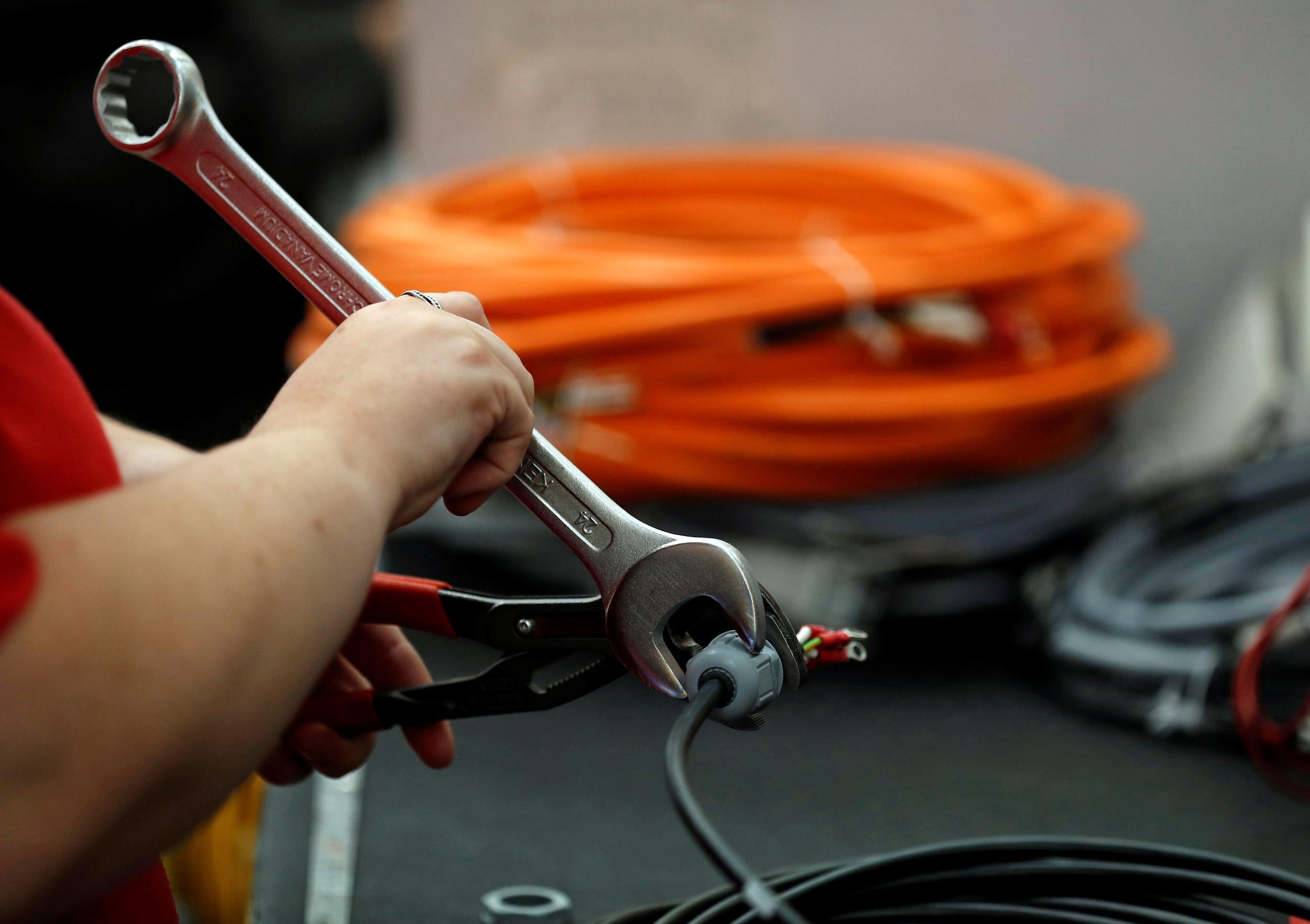Future of work: UK’s problem is not too many robots but too few, MPs say
‘The government needs to take more seriously both the opportunities and risks of automation than it has to date’

Automation threatens scores of jobs around the world but MPs say Britain faces a greater danger from slow adoption of the new technologies, which have the potential to create new fulfilling jobs and shorten working hours.
A 54-page report published by parliament’s Business, Energy and Industrial Strategy Committee on Wednesday concludes months of research, based on hearings and written evidence from manufacturers, universities, trade unions and other organisations.
“The problem for the UK labour market and our economy is not that we have too many robots in the workplace, but that we have too few,” the MPs say.
According to the report, the UK lags behind its G7 competitors in adopting robots, reaching the global average of 85 robots per 10,000 workers only by 2017. Before then, it was the only G7 nation to have fewer robots than the average.
The document outlines a series of measures for the government to speed up the take-up of automation. One recommendation is to propose in the next budget a new tax incentive designed to encourage investment in the new technologies.
But the report also recognises the risks to some workers from what is often called the “fourth industrial revolution” and calls for expansion of life-long learning and reskilling.
It says these are essential to ensure opportunities “don’t just fall to those with the ‘right’ degrees and skillsets”, and to increase the number of women in the technology sector where they currently make up only 17 per cent of the workforce.
“Throughout our inquiry we have heard from a range of stakeholders who have almost entirely been optimistic about what the future of work could hold, if managed well,” the MPs write.
“If managed well, the transition to a more automated British workplace should make businesses more productive, improve the supply of high-quality jobs and support working people to have more leisure time.
“If the transition is managed badly, entire groups and regions could be left behind [and] British businesses could find themselves uncompetitive.”
The report mentions the retail sector as an example of a past industrial change that was managed badly. Although a decade ago it was already clear that business will shift from the high street to warehouses, a lack of planning and consultation has meant that the impact on jobs has been “much more negative” than it needed to be.
Research released last week revealed that 108,000 retail jobs have disappeared over the last seven years, affecting mostly women, while 40,000 warehouse roles created during that time have mostly gone to men.
But there is also evidence companies across the economy are not doing enough to prepare their workforce for the automated future, with two recent surveys showing that over half of UK workers do not get opportunities to learn new skills.
“The government needs to take more seriously both the opportunities and risks of automation than it has to date,” the MPs write.
Their recommendations include “more co-operative” ownership models for technologies, stronger employment legislation and a fairer corporate tax regime.
“We have seen from previous inquiries that the practices of businesses such as Amazon and Uber can lead to workers being exploited by increasingly monopolistic firms who earn huge returns that do not flow back to the workers who help create that wealth,” the report notes.
The government will consider the report's findings carefully, a spokesperson said, adding: “We are investing nearly £1bn to develop the AI sector, helping ensure people have the skills to navigate the challenges of automation, including through a dedicated National Retraining Scheme. Our new Robotics Growth Partnership will also lead to a new Robotics Action Plan for the UK to help identify and make the most of future opportunities.”
Subscribe to Independent Premium to bookmark this article
Want to bookmark your favourite articles and stories to read or reference later? Start your Independent Premium subscription today.

Join our commenting forum
Join thought-provoking conversations, follow other Independent readers and see their replies